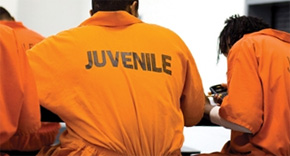Lawmakers Have Little Interest In Escambia, Santa Rosa Dispute With DJJ
December 14, 2015
After additional court rulings in a long-running dispute between the state Department of Juvenile Justice and dozens of Florida counties — including Escambia and Santa Rosa — over the costs of detaining juvenile offenders, a key lawmaker says the Legislature isn’t likely to wade back into the dispute during the upcoming 2016 session.
The dispute stems from a 2004 law that requires counties to pay “pre-disposition” costs associated with juveniles waiting for cases to be resolved in court. The department pays the costs of detaining youths whose cases have been decided — known as “post-disposition.” But the two sides have never agreed on what those terms meant. Instead, they’ve been embroiled in a series of legal battles about how to carry out the law, with the counties arguing they have been overcharged.
 The latest rulings came last week from the 1st District Court of Appeal, which rejected the arguments of counties. The rulings themselves dealt with relatively minor amounts in which counties objected to state calculations.
The latest rulings came last week from the 1st District Court of Appeal, which rejected the arguments of counties. The rulings themselves dealt with relatively minor amounts in which counties objected to state calculations.
The debate over the charges reached the Legislature in 2014 and 2015. Lawmakers came close to an agreement to split the costs 50-50 — but the deal fell apart when the counties held out to be reimbursed for previous overpayments, which amounted to tens of millions of dollars.
Sen. Rob Bradley, a Fleming Island Republican who led earlier negotiations, said this week that the counties pay about 57 percent and the state pays about 43 percent under the current formula for determining the costs of detaining juvenile offenders.
“Last year the (Department of Juvenile Justice) promulgated rules for dividing up the cost-sharing between the state and the counties, and those rules were challenged, and they were ultimately upheld,” Bradley said. “So we have a legal framework in place for cost-sharing for juvenile detention. And in taking the temperature of my colleagues, with that being the case, there doesn’t seem to be a lot of appetite to do anything further at this point in time.”
However, Florida Association of Counties spokeswoman Cragin Mosteller said the latest rulings demonstrate why lawmakers should intervene.
“Ultimately, this is a flawed system that needs a statutory fix,” she said. “We would love to see the Legislature take action so that counties are billed on the actual expenses occurred and not the estimated expenses.”
Thirty-five counties split juvenile-detention costs with the state. The remaining counties are considered “fiscally constrained” and are not required to contribute. Those that contribute have taken cases to the state Division of Administrative Hearings, which has ruled several times in their favor.
In the rulings last week, the appeals court essentially upheld the process by which the Department of Juvenile Justice corrected earlier errors in calculating the counties’ shares of juvenile detention costs. Counties involved in the cases were Alachua, Orange, Escambia, Duval, Bay, Seminole, Okaloosa, Pinellas, Brevard, Hillsborough, Santa Rosa, Hernando, Miami-Dade and Broward.
Department of Juvenile Justice Secretary Christy Daly said she was pleased with the appeals court’s ruling, which she said “affirmed that the department did adhere” to an earlier ruling from the Division of Administrative Hearings.
“DJJ’s focus is on ensuring that youth held in secure detention receive appropriate and necessary services,” Daly wrote in an email. “As the courts continue to review challenges related to shared costs for secure detention, DJJ remains committed to working with the counties and the Legislature to find a resolution that best serves Florida’s youth and their families.
by Margie Menzel, The News Service of Florida
Comments
3 Responses to “Lawmakers Have Little Interest In Escambia, Santa Rosa Dispute With DJJ”



@bob:
None of the things I mention are volunteer work. Also, I don’t wish anybody to do anything, I could care less what the kids do while they are held. I just made a suggestion. As far as education, I think the kids that want one stay outta trouble already. The deputies shoes was me trying to be funny, really. You seem to be concerned, though, so YOU should be volunteering.
These are kids who have not been found guilty of anything. They are being held until they have their day in court and due process. I guess they could be asked if they wish to conduct some of the work above but shining deputies shoes- Really! What about keeping their education up while they are being detained so we don’t end up with an inmate when they reach 18 in the county jail. Maybe Mike ought to consider doing a little of the volunteer work he wishes others to do. I got a nice pair of loafers he can start with!
The counties holding the pre-dispositional juveniles should just put them to work as a source of free labor, doing lawn maintenance, picking up garbage, digging ditches, painting, washing buses, feeding & grooming the sheriff’s mounted division horses, mucking out the stalls of same, etc. They could shine deputies shoes & wash dishes at the state mental & retirement homes, along with janitorial duties at the same facilities. This would recompense the counties somewhat for the expense of keeping these errant youths.